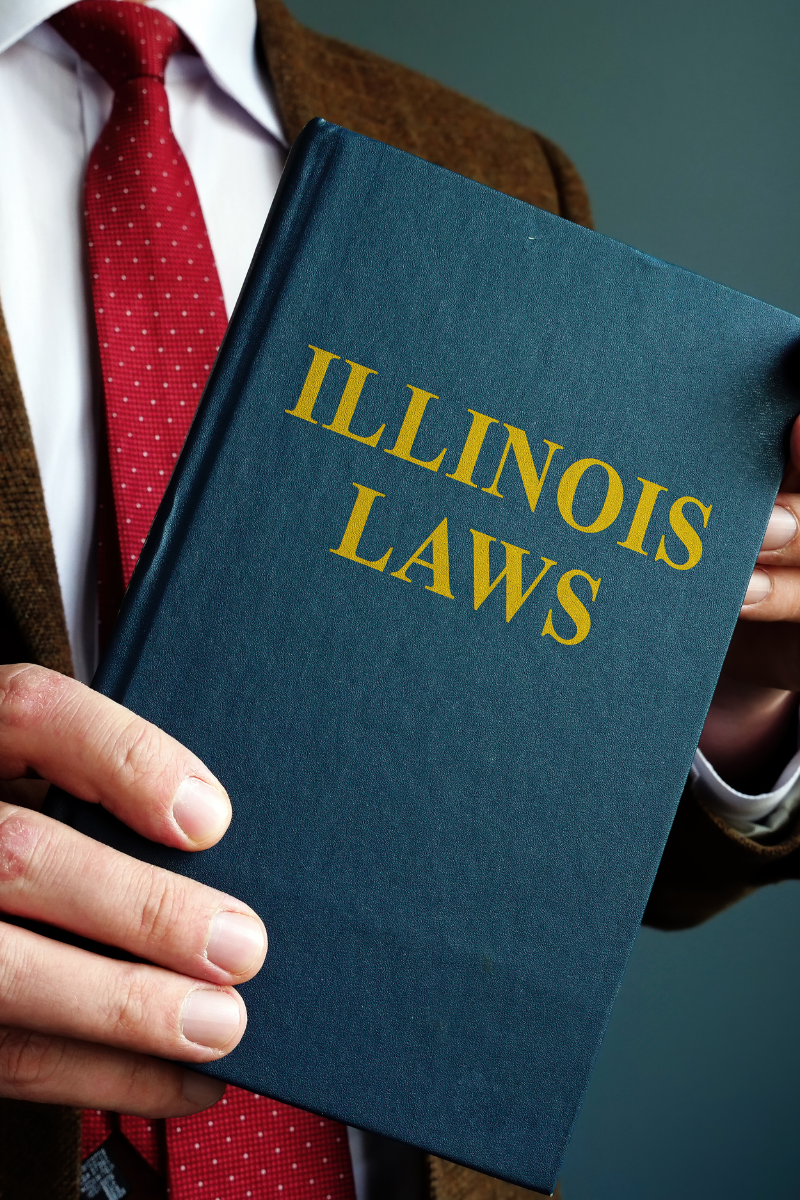Navigating Divorce: Prioritizing Mental Health During Stress Awareness Month
April is Stress Awareness Month, a crucial to highlight the importance of self-care, coping strategies, and professional support during a divorce. Divorce can trigger a range of emotions, including grief, anxiety, anger, and sadness. The American Psychological Association (APA) recognizes divorce as one of life’s most stressful events.
At Masters Law Group, we understand the emotional and legal burdens of ending a marriage. We aim to provide compassionate legal guidance while helping you prioritize your mental well-being. Here’s what you need to know.
The Intersection of Divorce and Stress
Divorce in Illinois and across the U.S. is more than just a legal process—it’s an emotional and psychological upheaval that can significantly impact mental and physical well-being. Feelings of grief, anger, anxiety, and depression are common as individuals navigate the uncertainty of life after separation. Recent studies have reinforced the connection between marital status and health outcomes:
- A 2024 study published in Nature Human Behavior analyzed data from over 100,000 individuals across seven countries and found that unmarried individuals have a 79% higher risk of depression, widows face a 64% increased risk, and divorcees have a 99% higher likelihood of suffering from depression compared to married individuals. (Nature Human Behavior).
- Another study highlighted that married individuals tend to live longer than their unmarried counterparts, with men benefiting more from the health advantages of marriage. (Harvard Health).
Those going through a divorce often face a range of stressors, including:
- Emotional Distress: Coping with feelings of loss, uncertainty, and fear of the future.
- Financial Anxiety: Managing concerns about asset division, spousal support, and financial security.
- Parental Concerns: Addressing worries about parental responsibilities, co-parenting dynamics, and the emotional impact on children.
- Legal Pressure: Handling the stress of court proceedings, negotiations, and complex legal paperwork.
Prioritizing mental health during this time is crucial. Taking proactive steps to manage stress can help individuals make better decisions, protect their well-being, and confidently transition into a new phase of life. Let’s take a look at some effective strategies for managing stress during divorce.
 1. Seek Professional Support
1. Seek Professional Support
While a divorce attorney is crucial in guiding you through legal complexities, emotional support is equally as important for helping manage stress and making sound decisions. Divorce can be a turbulent time, and having a strong support system can make a significant difference in your overall well-being. Consider working with:
- Therapists and Counselors: Professional therapy provides a safe space to process emotions and develop coping strategies.
- Support Groups: Connecting with others who have experienced divorce can provide comfort and shared wisdom.
- Mediators: If you’re looking for a less adversarial way to settle your divorce, working with a trained mediator can help you and your spouse reach a fair agreement while minimizing stress and conflict.
2. Practice Self-Care
Self-care is often overlooked during divorce, yet it plays a vital role in maintaining emotional stability. Taking small, intentional steps to care for yourself can help reduce stress, improve resilience, and provide a sense of control amidst uncertainty. Here are a few ways to incorporate self-care into your daily routine:
- Prioritize Physical Health: Regular exercise, nutritious meals, and sufficient sleep can reduce stress and improve mood.
- Engage in Relaxation Techniques: Practices such as yoga, meditation, and deep breathing can help regulate emotions.
- Set Boundaries: Limit discussions about divorce outside of legal settings to avoid constant emotional distress.
3. Focus on What You Can Control
One of the most challenging aspects of divorce is the uncertainty it brings. From legal proceedings to financial changes and emotional adjustments, it’s easy to feel powerless. Focusing on what you can control can help ease stress:
- Organize Legal Documents: Stay on top of paperwork and deadlines to prevent added stress.
- Make Future Plans: Set new personal and professional goals to create a sense of direction.
- Establish a Routine: Consistency in daily activities can provide stability amid uncertainty.
4. Consider Alternative Dispute Resolution 
Litigation can be time-consuming and emotionally draining. Alternative dispute resolution (ADR) methods can help couples work collaboratively with the guidance of a neutral third party. ADR can:
- Reduce conflict and hostility.
- Provide more control over the outcome.
- Lead to quicker and more cost-effective resolutions.
A well-rounded team of legal professionals can help provide both legal guidance and emotional support during divorce. Masters Law Group has decades of experience in mediation and alternative dispute resolution methods for divorce, helping clients reach amicable agreements while minimizing stress.
5. Protect Your Children’s Mental Health
Divorce can be particularly challenging for children, as they may struggle with changes in family dynamics. To help support their emotional well-being:
- Maintain Open Communication: Encourage children to express their feelings and concerns.
- Avoid Conflict in Front of Them: Help shield children from legal disputes and negative discussions about the other parent.
- Establish Consistency: Keep routines as stable as possible to provide reassurance and security.
 How Masters Law Group Can Help
How Masters Law Group Can Help
At Masters Law Group, we understand that divorce encompasses more than just legal proceedings; it’s a profound personal journey. Our comprehensive services are designed to help support you through every facet of this transition:
- Personalized Legal Representation: We recognize that each divorce case is unique. Our award-winning attorneys provide tailored legal strategies to address your circumstances, helping ensure your rights and interests are protected.
- Mediation Services: Our mediators help facilitate constructive dialogues to reach mutually beneficial agreements for couples seeking amicable resolutions, potentially reducing the emotional toll of contentious litigation.
- Child-Centric Approaches: When children are involved, their well-being is paramount. We advocate for arrangements that serve the child’s best interests, striving to help minimize disruption to their lives.
- Post-Divorce Support: Our commitment extends beyond the finalization of your divorce. We assist with post-divorce disputes and modifications, recognizing that circumstances can evolve over time.
Final Thoughts
Divorce is a significant life transition that affects emotional, financial, and physical well-being. While stress is inevitable, taking proactive steps to protect your mental health can make the process more manageable. At Masters Law Group, we are committed to providing compassionate legal support while helping clients prioritize their well-being.
If you need assistance with divorce proceedings or mediation, we are here to help. Contact us today to set up your complimentary consultation.
Frequently Asked Questions (FAQ): Navigating Divorce & Stress
1. How can I reduce stress when communicating with my ex-spouse?
Establish clear boundaries and communicate through written messages or co-parenting apps when necessary. Keep conversations focused on important matters and avoid emotional confrontations.
2. What legal options do I have to avoid a stressful courtroom battle?
You may consider mediation or collaborative divorce, which can help resolve disputes outside of court while maintaining a cooperative approach. Masters Law Group has experience in handling these alternative dispute resolution methods, helping clients achieve fair outcomes with less conflict and emotional strain.
3. How can I manage financial stress during a divorce?
Create a realistic budget to help you navigate this transition and plan for the future. Understanding your rights regarding asset division, spousal support, and potential tax implications is also important. At Masters Law Group, we provide legal guidance to help protect your financial interests and secure a fair settlement that supports your long-term stability.
4. Can my attorney help me with emotional stress?
While attorneys focus on legal matters, a compassionate divorce attorney can offer guidance and refer you to mental health professionals with experience in divorce-related stress. At Masters Law Group, we take a holistic approach, advocating for your legal rights while recognizing the emotional challenges of divorce.
































